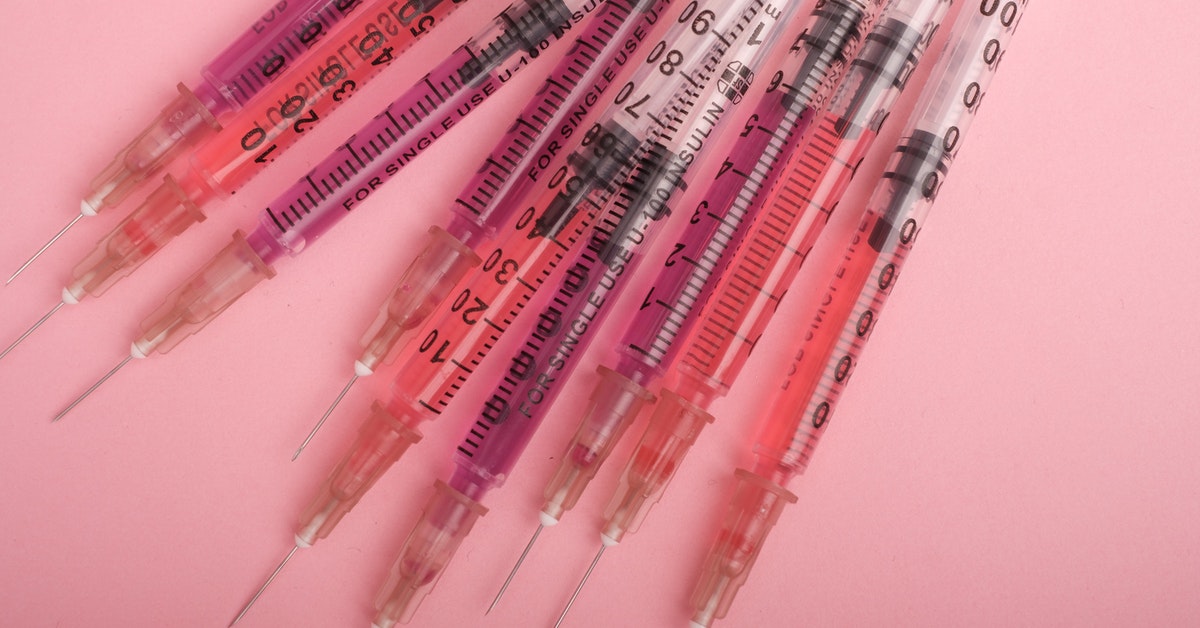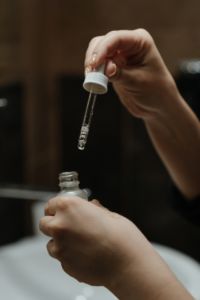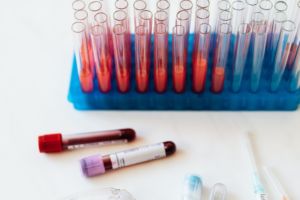
Arthritis is an often debilitating condition that affects millions of Americans. There are over one hundred different types of arthritis, but all of them cause joint pain, swelling, and stiffness that can make everyday activities difficult. Topical arthritis creams typically don’t provide enough relief, and NSAIDs may cause serious side effects when taken regularly. This leaves arthritis patients searching for safer, more effective treatments. Fortunately, treatment options have advanced, and there are now safe and effective injections for arthritis pain. Here’s a look at two of the most effective options.
Hyaluronic Acid Injections for Arthritis
You may have seen hyaluronic acid as an ingredient in skin care products, but its benefits go way beyond skin plumping and hydration. Hyaluronic acid, or HA, is naturally produced by your body. It gives shape to the skin and is found in high concentrations in the lubricant within the joints. Like motor oil, HA helps joints move smoothly and minimizes friction and wear. The body produces less HA as we age, causing the fluid in our joints to become thinner and less effective.
By injecting HA into the joint, we can replace function and lubrication that has been lost to the aging process. HA doesn’t only lubricate the joint. It also coats nerves and reduces inflammation. The net result is less pain and swelling.
Studies show that using HA in patients with mild to moderate knee osteoarthritis can help reduce cartilage degeneration. For some patients, it may slow the progression of the disease and help them avoid surgery.
Depending on the exact formulation of HA your provider uses, you will need one or more injections a week for a few weeks. HA stimulates natural inflammation relief and healing, so it doesn’t work overnight. Patients typically begin to feel results about four weeks after their first injection. Relief is long-lasting, and most patients can wait six months or longer before getting another injection. HA can be used in knee, ankle, shoulder, hip, and thumb joints, but you should check with your provider to see what joints they treat.
The risk of side effects from hyaluronic acid injections is very low when a licensed provider performs the procedure. Most people are good candidates for the treatment, but you should check with your doctor if you have other medical conditions or take medications.

PRP Injections for Arthritis
Our bodies are made to heal, but the healing process requires adequate blood flow and specialized cells to progress. The joint’s interior is made up of hard tissues like cartilage that don’t relieve much blood flow. This makes them slow to heal and prone to injury. The first stage of the healing process is inflammatory. The inflammation is necessary, but it can be harmful if healing doesn’t continue past this stage. A stalled healing process is common in the joint and other areas that don’t receive good blood flow. This causes pain, swelling, and continued damage to the cartilage.
Platelet-rich plasma injections, or PRP, deliver the specialized cells normally present in blood flow. They work to decrease inflammation, create collagen, and speed healing. PRP doesn’t cure arthritis, but it can slow progression and decrease pain and stiffness.
PRP injections are given in a series of three, typically one per week. Like HA, PRP initiates a natural healing process, so it takes several weeks to feel results. Most patients begin feeling a difference within a month after treatment, and symptoms continue to improve for several months. After their initial series, most arthritis patients only need one yearly “booster.”
PRP is among the safest treatments available. The platelet-rich plasma is derived from the patient’s own blood. Your provider will draw a blood sample and then spin it in a centrifuge to separate the red blood cells from the platelets and plasma. Then a small amount of plasma is mixed with the platelets and injected into the treatment area. Most people can receive this treatment safely, but you should ask your doctor if you have a bleeding disorder or take medications. PRP shots are typically used for osteoarthritis of the knee.
Two Treatments for Knee Pain
PRP and Hyaluronic acid are both safe and effective treatments for arthritis pain. Many patients receive significant relief from just one of these treatments. Patients with severe knee pain or more degeneration will benefit from combining these treatments. When used together, HA and PRP address the two main problems that cause arthritis pain. HA increases lubrication and reduces wear and tear within the joint. PRP decreases inflammation and encourages damaged tissues to heal.
Given the long-lasting results, many patients find that it’s worth it to receive both injections. This complete treatment approach allows patients to go from experiencing severe pain during everyday activities to living their lives with no or minimal pain. Patients in earlier stages of arthritis also benefit from receiving these two treatments together as they can slow degeneration even more than either one used alone. This can help you avoid surgery down the road and live pain-free now.
What About Cortisone Shots?
Many people immediately think about cortisone when considering injections for arthritis pain. Cortisone has its place as a treatment option, but it is typically better for people who have an injury that can heal. Long-term, frequent use of cortisone is associated with serious side effects. Because of this, there are limits on how many cortisone shots you can receive in a year. Many arthritis patients suffer from pain between injections. If you’ve tried cortisone shots in the past but found that they didn’t last long enough or couldn’t tolerate the side effects, PRP or HA may be a better option for you. The risk of side effects is much lower, and the benefits are longer lasting. You can also receive HA or PRP injections more often if you need to without worrying about side effects.
Arthritis Injections in Houston
At Vanguard Spine & Sport, we provide complete care for arthritis patients, including injections, chiropractic care, and physical therapy. Schedule a consultation to find out if PRP and HA injections can help you live with less pain.





